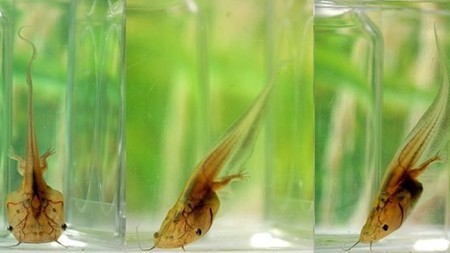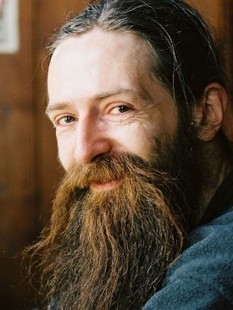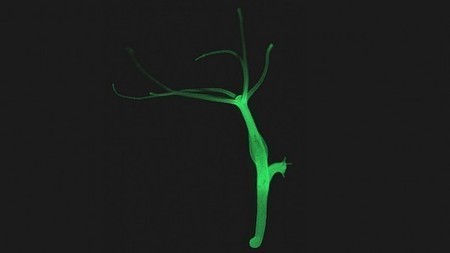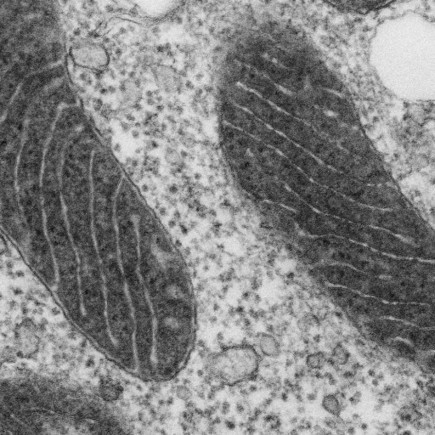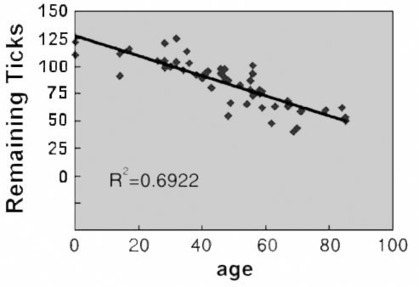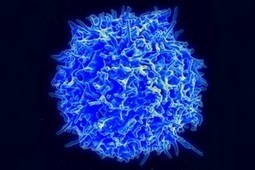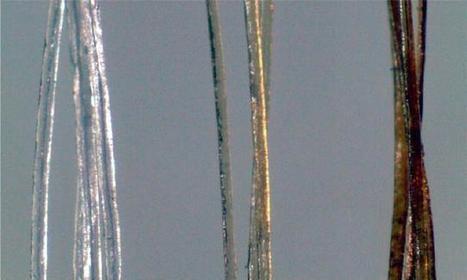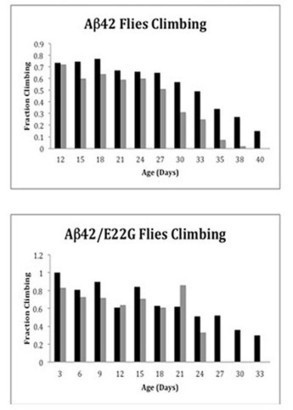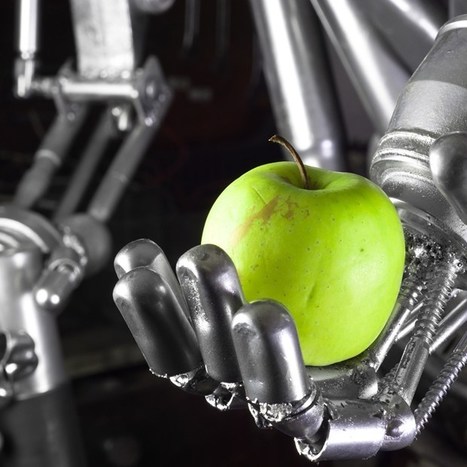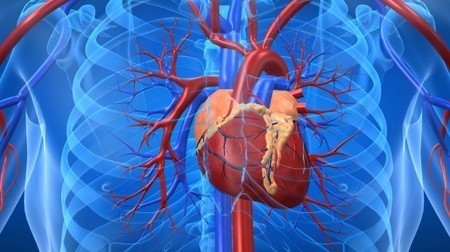 Your new post is loading...
 Your new post is loading...
University of North Carolina Lineberger Comprehensive Cancer Center researchers have developed a strain of mice that turns on a gene from fireflies to provide a visual indication of aging and tumor growth in mice. The mice light up whenever another mouse gene, p16INK4a (p16) is is activated (in cells undergoing senescence, the p16 gene is switched on).
Oxygen-containing free radicals are commonly believed to be harmful to cells. However, research indicates they actually play a vital role in the regeneration of the tails of tadpoles. The finding could have profound implications for the healing and regeneration of human tissue.
An interview on aging and life with actress Jane Fonda, who is now 75 years old.
In a review of almost 100 past studies covering nearly three million people, researchers found that being overweight or slightly obese was linked to about a 6 percent lower risk of dying, compared to people considered "normal weight."
An unlikely, decadelong journey that began with the discovery of a rapidly aging mouse has led scientists to a protein that seems to protect animals from cancer and other scourges of old age—with no apparent downsides. There are still lots of mysteries about the protein, called BubR1, but the work offers clues about how protecting chromosomes can enhance health.
Aubrey de Grey, Chief Science Officer of SENS Foundation and the world’s most prominent advocate of anti-aging research, argues that it makes no sense to spend the vast majority of our medical resources on trying to combat the diseases of aging without tackling aging itself, writes ethicist Peter Singer on Project Syndicate.
De Grey believes that even modest progress in this area over the coming decade could lead to a dramatic extension of the human lifespan.
The tiny freshwater polyp Hydra is a remarkable creature. It does not show any signs of ageing and appears to be immortal. Researchers from Kiel University have examined this phenomenon and uncovered an important link to the ageing process in humans that could lead to the development of advanced rejuvenation therapies. How does the polyp Hydra do this? It accomplishes the feat of apparent immorality by reproducing through budding rather than mating. Each polyp contains stem cells capable of continuous proliferation. Without this endless supply of regenerating stem cells, the animals could not reproduce.
To survey previously uncharted territory, a team of researchers at UW-Madison has created an “atlas” that maps more than 1,500 unique landmarks within mitochondria that could provide clues to the metabolic connections between caloric restriction and aging. The map, as well as the techniques used to create it, could lead to a better understanding of how cell metabolism is rewired in some cancers, age-related diseases and metabolic conditions such as diabetes.
Mayo Clinic study in seniors finds that diets high in sugars and starches promote brain fog and dementia. Correlations between carb intake and brain fog included: *Those with the highest carbohydrate intake relative to total fat and protein intake were 3.6 times likelier to develop MCI.
Omega-3 fatty acid supplementation lowered the concentration of inflammatory cytokines in a research study. The data incdicates that maintaining a healthy (higher) ratio of omega-3: omega-6 fats can reduce the impact of aging on cellular health. Inflammation, oxidative stress, and immune cell aging together lead to higher incidence of disease. Nutritional supplementation, including omega-3s can impact and reduce this damage.
Following a healthy lifestyle can lead to a significantly longer life, even among people who are already well into their 70s, new research shows. This study followed people in their mid-70s and older for almost twenty years. Researchers found a strong association between lifestyle and life expectancy. "Physical activity was the single biggest predictor of longevity."
The red wine compound resveratrol could help older people to battle against motor deficiencies that lead to mobility problems and increased risks of falls, according to new research in mice. The older mice in the study received resveratrol for weeks. By the fourth week, these mice had improved mobility, on par with the younger mice.
People who keep their teeth and gums healthy with regular brushing may have a lower risk of developing dementia later in life, according to a U.S. study. Researchers at the University of California who followed nearly 5,500 elderly people over an 18-year-period found that those who reported brushing their teeth less than once a day were up to 65 percent more likely to develop dementia than those who brushed daily.
|
The root cause of aging is very straightforward: we age because our cells age.
In 1961, Leonard Hayflick, a researcher at the Wistar Institute in Philadelphia, discovered that there was a limit to the number of times a human cell could divide.1 After about 70 divisions, a cell derived from embryonic tissue enters a stage where its ability to divide slows and eventually stops. This stage is called cellular senescence. Hayflick also observed that the number of times a cell could divide was governed by the age of the cells: cells from a twenty-year-old could divide more times than cells from a fifty-year-old, which in turn would divide more times than cells from a ninety-year-old.
Researchers at the RIKEN Research Center for Allergy and Immunology in Yokohama, Japan have devised a way to increase the number of cancer-fighting T cells and make up for their short life spans with the hope that the superior numbers of immune cells will enable them to overwhelm and conquer.
Attention seniors: French scientists have developed a process that permanently dyes white hair without harmful chemicals. Philippe Walter and colleagues soaked white hairs in a solution containing fluorescent gold nanoparticles. The hairs turned pale yellow and then darkened to a deep brown. The color remained even after repeated washings.
"We actually delayed the onset of aging and extended the healthy lifespan," Zhou said of the mice. Mice with progeria lived 30 percent longer when fed with resveratrol compared with progerial mice not given the compound. Asked if their study supported the notion that drinking red wine delays aging and reduces the risk of heart disease, Zhou said the alcohol content in wine would cause harm before any benefit could be derived.
Scientists have found that it might be possible to slow the decline of aging tissue by adding more filler to the fiber-filled area around the cells
As people grow older, they can benefit from paying attention to food, exercise, sleep and stress.
An efficient, high-volume technique for testing potential drug treatments for Alzheimer's disease uncovered an organic compound that restored motor function and longevity to fruit flies with the disease, according to new research that could help...
Via LeapMind
Açai fruit fed to aged rats reversed age-related cognitive and motor declines, a study conducted through Tufts University has found. The rats who were fed açai performed significantly better on the cognitive and motor skill tests than their counterparts on a standard diet.
Wired talks to the experts about what to expect from the future of the human ability... Aubrey de Grey
Chief science officer, SENS Foundation
"Medicine is distinct from human enhancement, but they may intersect. Somatic gene therapy will treat many diseases including the defeat of aging, but also allow such enhancements as skin luminescence. Tissue engineering may also allow us to have gills. The sky is the limit."
(Reuters) - People who drink heavily - at least four drinks a day - may be at risk of suffering a brain hemorrhage at a relatively early age. Although the study itself does not prove that drinking = stroke, the patients who did drink heavily were twice as likely to die. And at a younger age.
Moderate exercise, and a regular intake of oily fish fatty acids, keeps elderly immobility at bay. A small study of women found that omega-3 fatty acids plus exercise increased muscle strength by 20%, almost twice as much as when olive oil was used. Exercise combats the natural muscle loss associated with aging. Maintaining adequate protein intake and staying active are already known to mitigate the rate of degeneration. It now appears that adding omega-3s could significantly boost this effect. A larger study is planned, including men and women.
A new understanding of the immune system may be paving the way for the development of a vaccine for heart disease. “If successful, a tolerogenic vaccine could stop the inflammation component of heart disease,” [Dr. Klaus] stated. “This could probably be used in conjunction with the statins (cholesterol-lowering drugs) that have already taken a significant chunk out of the numbers of people with heart disease. Together, they could deliver a nice one-two punch that could be important in further reducing heart disease.”
|



 Your new post is loading...
Your new post is loading...


